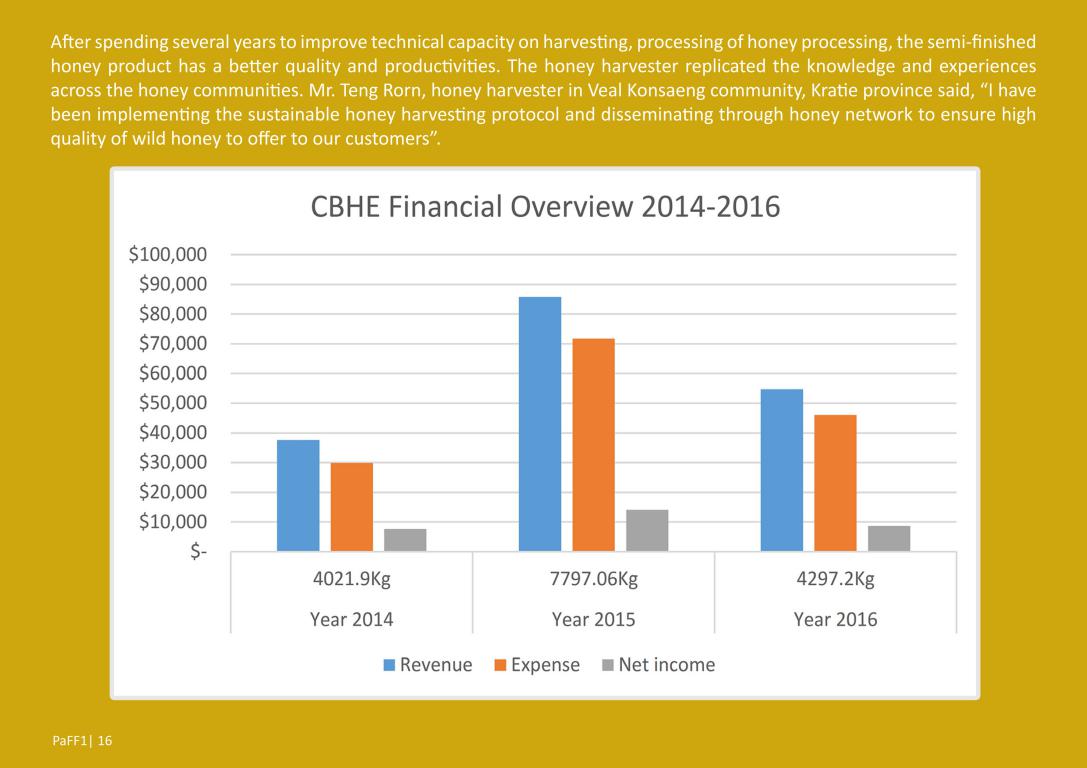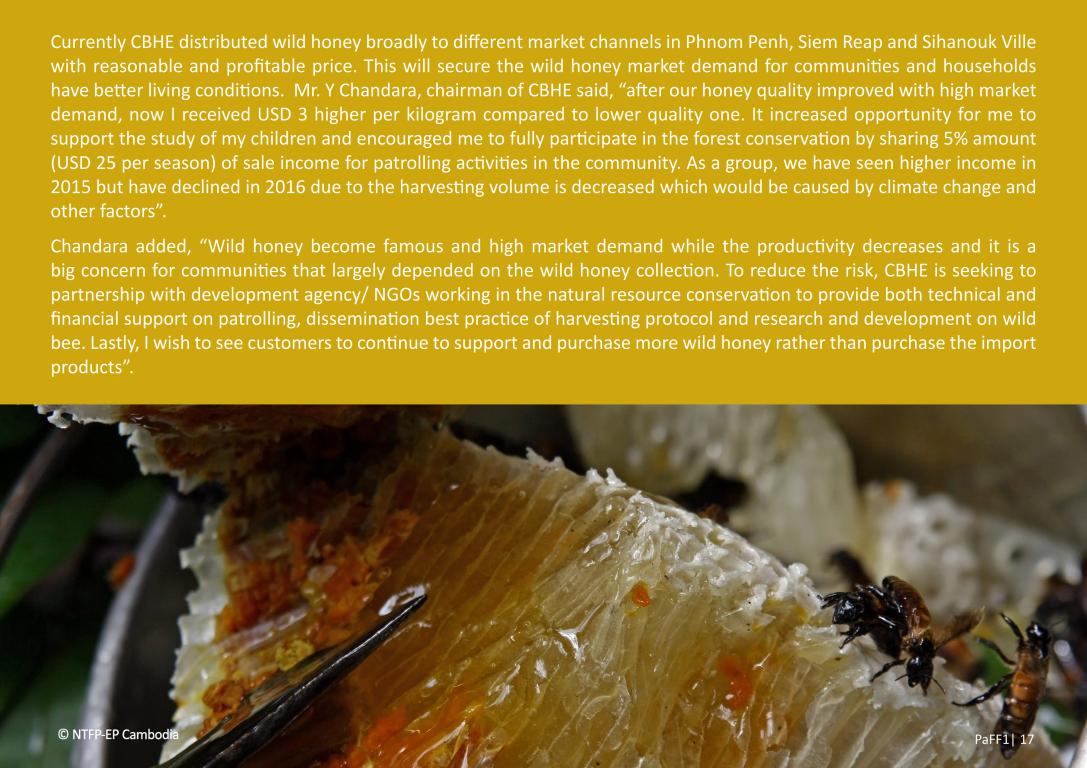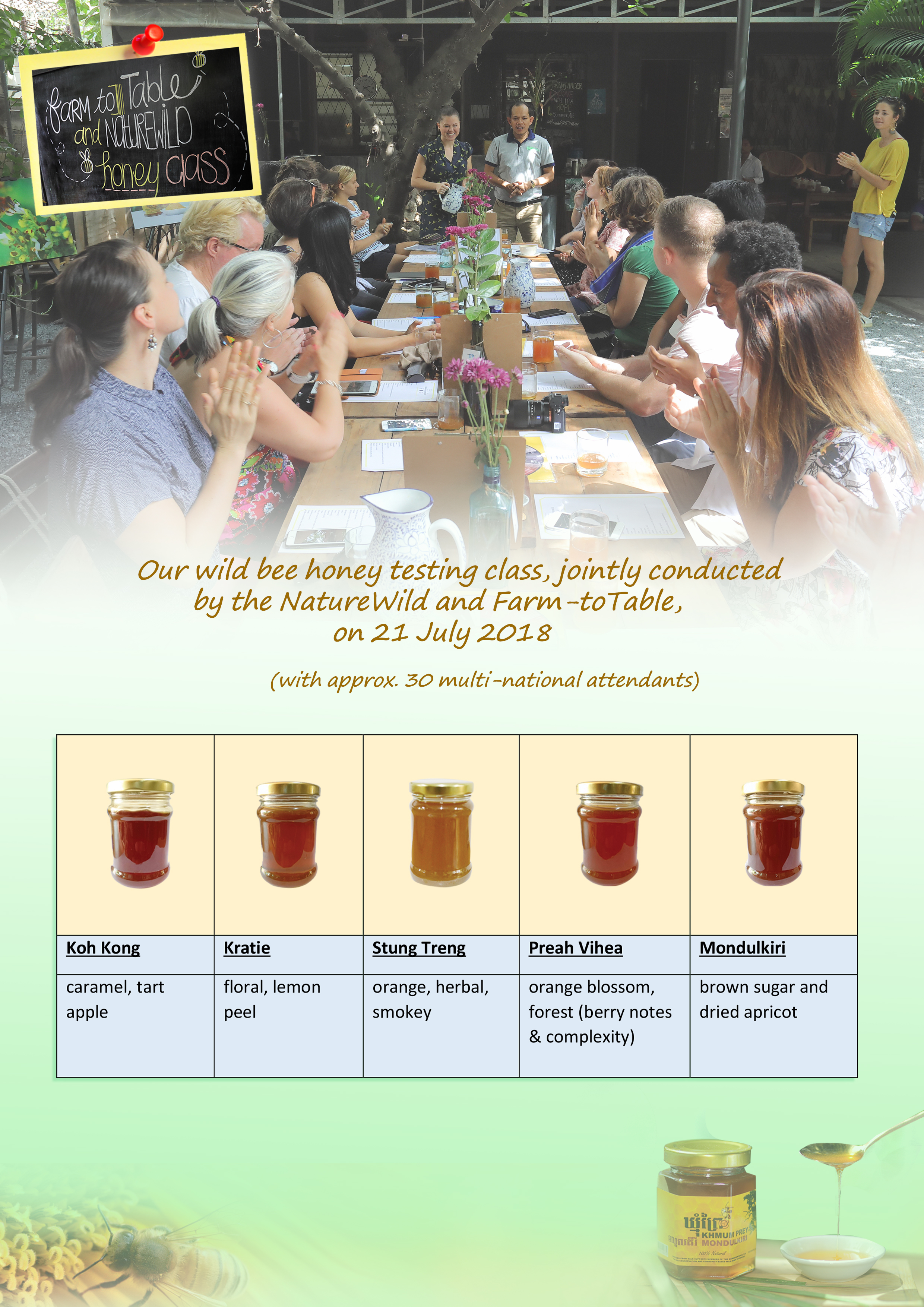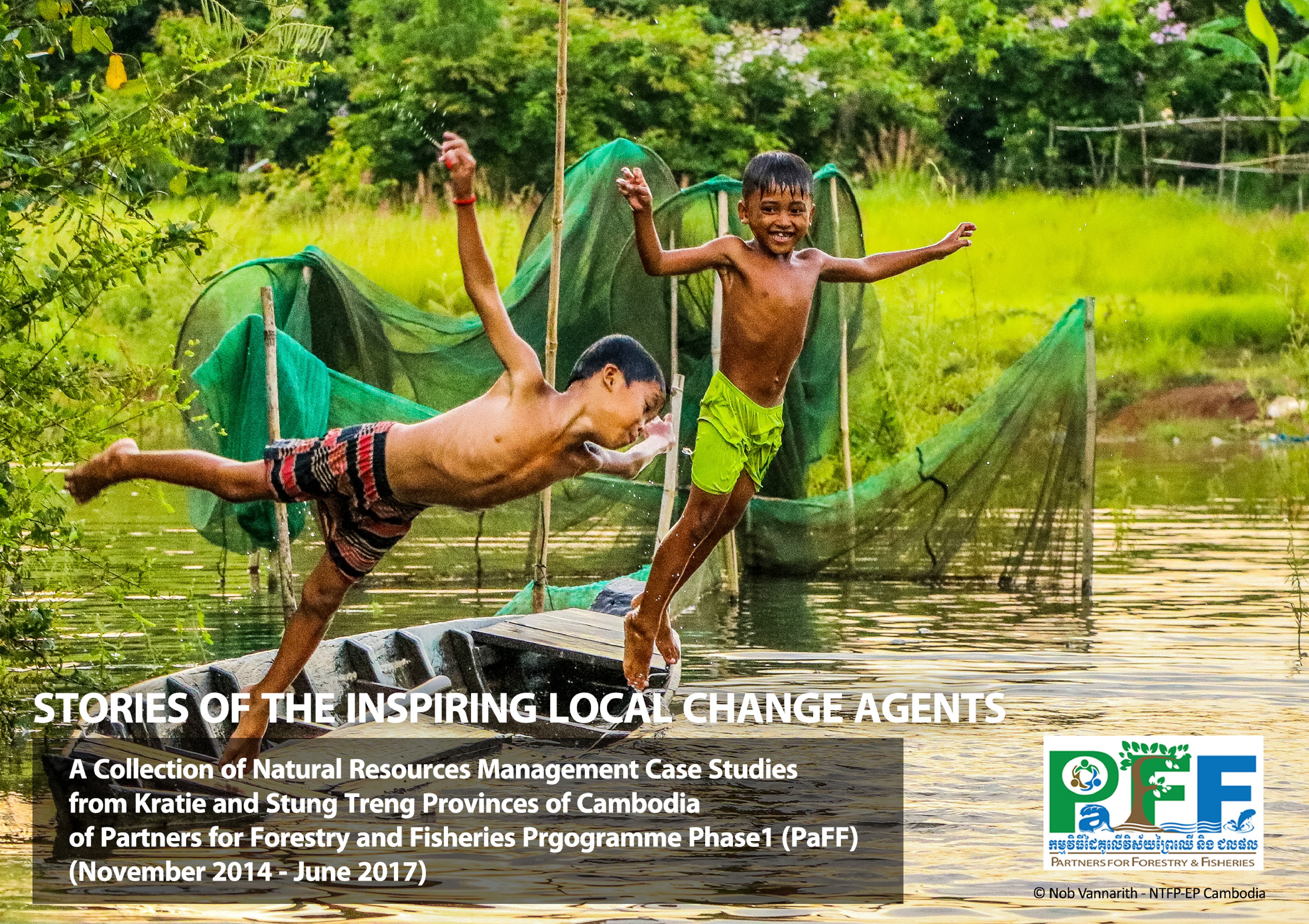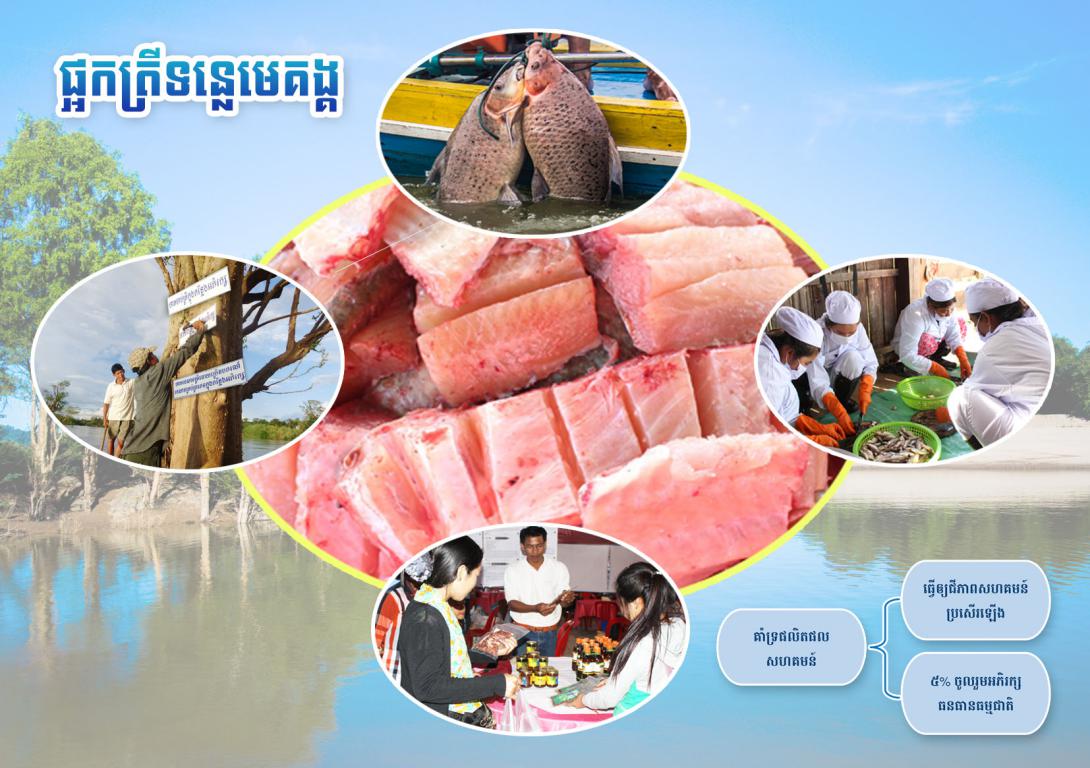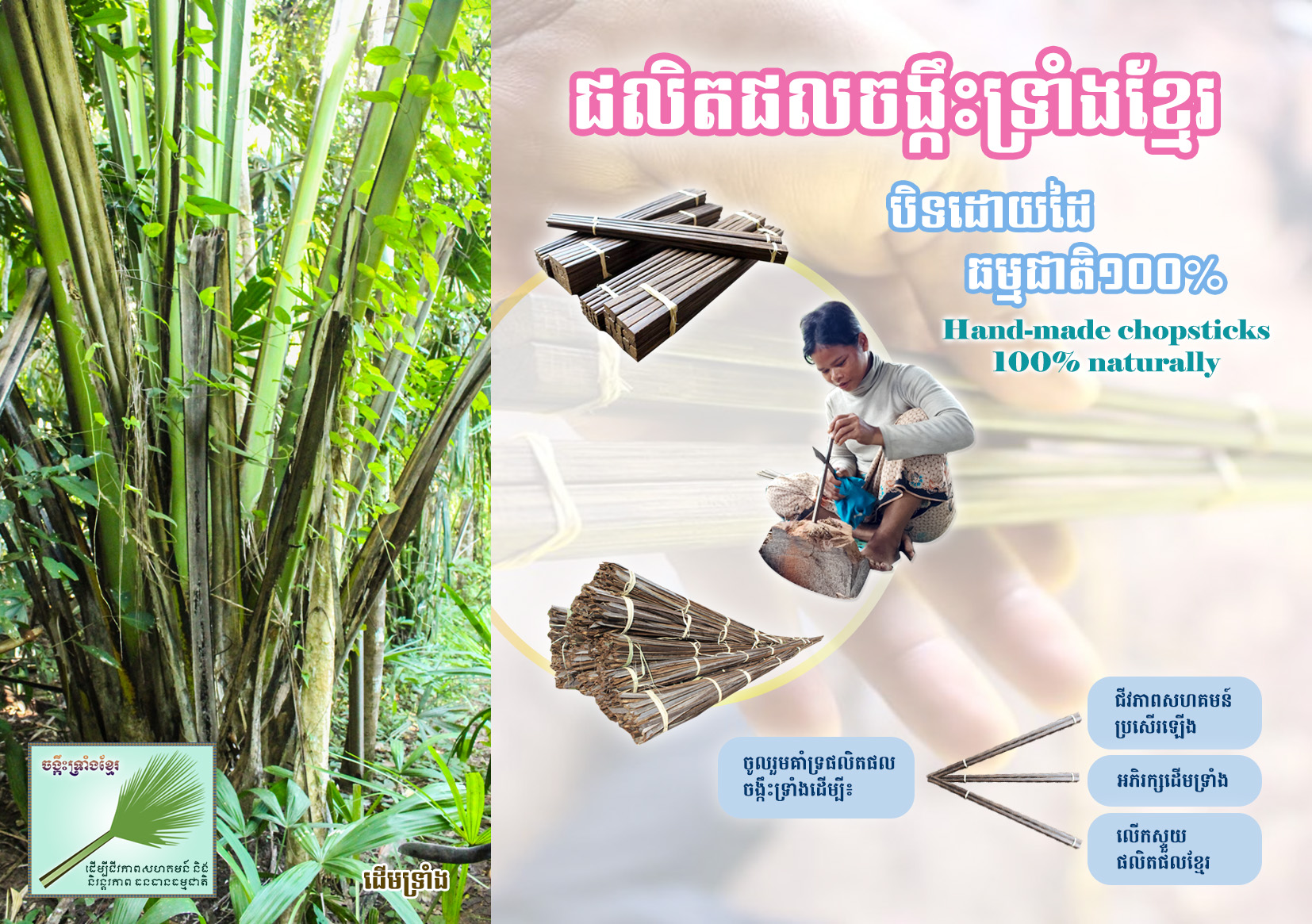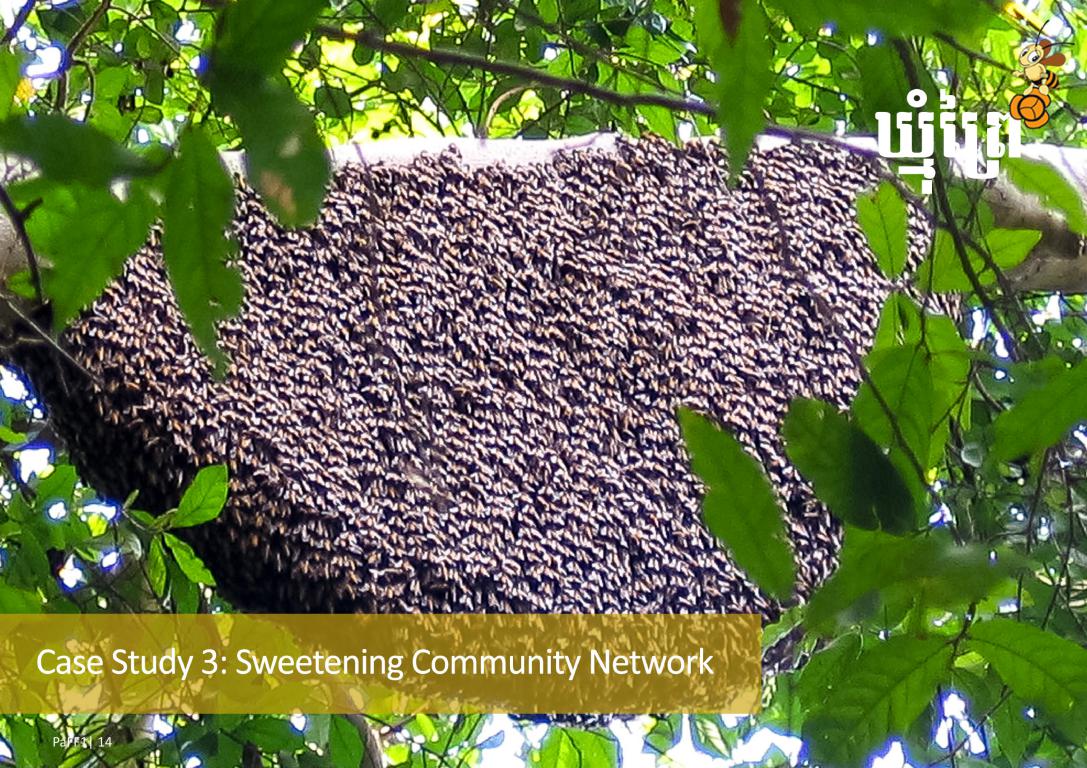
Wild honey collection is an old tradition the forest dependent communities in Cambodia, especially the indigenous people. Traditionally, harvesting honey is used for home remedies and household consumption. Commercial exploitation has led to unsustainable harvesting methods and in many cases, dishonest practices (eg. selling adulterated honey), which has contributed to a generally skeptical local market about forest honey in Cambodia. Quality and building consumer confidence are a must in order to enter the market. Wild honey collection as a livelihood is under threat because the honeybees themselves are under threat due to the loss and/or declining quality of the forest, and hence affecting bees’ habitat and main sources of food. Also, climate changes such as increased rainfall or drought affect the health and productivity of honeybees.
There are many development agencies working on wildlife and forest conservation but none of them focus on honey harvesting method. The Cambodia Federation for Bee Conservation and Community based Wild Honey Enterprise (CBHE) is the first national wild honey network founded on 24 June 2010 within 16 honey groups comprising of 780 honey harvesters from different six provinces across the country such as Mundulkiri, Preah Vihear, Kratie, Ratanakiri, Strung Treng and Koh Kong provinces. The network aims at improving community livelihoods through the sustainable community-based enterprise development and forest management, following by its mission, increasing the dissemination of wild honey product quality assurance by implementing the honey sustainable harvesting protocol and promoting the quality of wild honey products to market.
NTFP-EP supported CBHE in establishing the honey network, technical capacity development and market link to ensure that CBHE committees have capacity to manage and operate the network in order to secure the market for its members’ product. The honey harvesting protocol and standard developed out of existing traditional knowledge and expertise in honey hunting and value addition in Cambodia from other community experience in other countries which consolidated good practices among communities that have been sharing through the exchanges, capacity building activities and learning from the resource people. The protocol was introduced and disseminated to harvesters across the country through honey community network. Another interest is high quality wild honey product and strong reputation brand called “KHMUM PREY or WILD HONEY” which is the collective mark, represent a quality of wild product and forest conservation that contributed to sustainable consumption and production and sustainable development goal.
